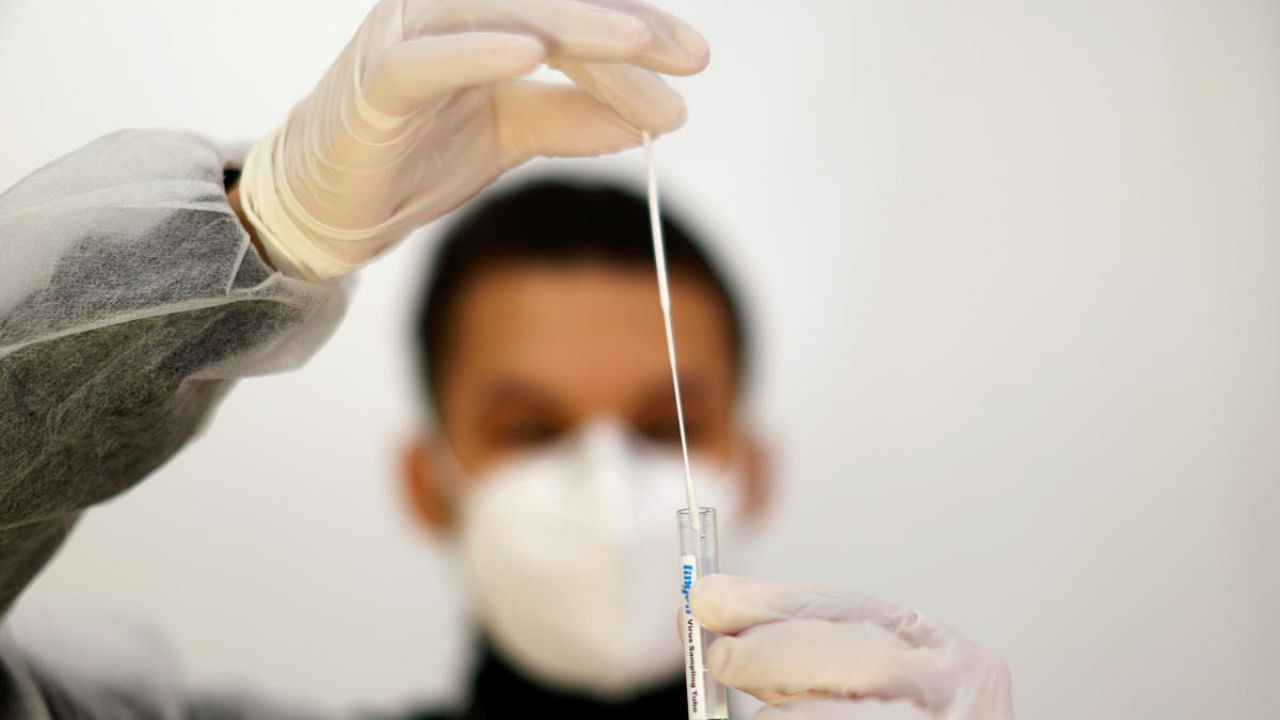
A new variant of the Covid-causing virus (SARS-CoV-2), known as B1.1.529, has triggered alarm among scientists across the world due to what appears to be its ability to spread very fast and mutate highly. While it is early to get a definitive answer on the tricks up the virus' sleeves, scientists have asked people to get themselves vaccinated and follow the Covid-appropriate behaviour like wearing a face mask in public. Here's more on this virus variant:
When and where has the new variant been found?
The first case was recorded on November 11 in Botswana. The earliest case in South Africa was found three days later. Since then, the new variant has been found extensively in the Gauteng province of South Africa, as well as in Hong Kong and Israel. Gauteng has some of South Africa's largest cities like Johannesburg and Pretoria. Experts are of the opinion that the B1.1.529 is "becoming dominant" in South Africa, displacing the Delta variant. Early signs from diagnostic laboratories corroborate its rapid expansion in Gauteng and it may already be present in many other provinces of South Africa.
How many cases of the new strain have been found so far?
As of now, there are over 84 confirmed cases, of which 77 are from South Africa alone. There are nearly 1,000 probable cases that are now being sequenced for confirmation.
Why is the new virus a cause for concern?
There are several extremely worrying signals. The B1.1.529 has an "extremely high" 32 mutations in the spike protein, which is a "real concern" and much more worrisome than any other variant found to date. The virus uses its spike protein to enter human cells and is hence the primary target of medicines and vaccines. Many of the spike mutations independently predict immune (antibody) escape and transmissibility. The new variant has spread very fast in South Africa compared to the previous variants of concerns like Delta and Beta.
What do experts say?
Vinod Scaria, a senior scientist at the Institute of Genomics and Integrative Biology, Delhi, says: "Looking at the (B1.1.529's) exponential rise in two weeks to become the dominant strain in South Africa, I think we need to be cautious and act now and not wait and watch. Vaccines and public health measures are indeed the keys."
A point to keep in mind, however, is that the properties of single mutations don't always add up when they occur in combination. But since all the four cases in Botswana and the two cases in Hong Kong are vaccinated individuals, the new strain raises the concerns of "breakthrough infections". Quoting a modelling study, epidemiologist Eric Feigl-Ding, who is tracking the virus, says the B1.1.529 can have a 500% competitive advantage over the original strain. That is bad news even though more studies are required to confirm or reject such fears.
What's being done to prevent the new strain from spreading to other countries?
India's Health Ministry has asked states to rigorously test and screen passengers travelling from and transiting through countries where the B1.1.529 has been detected. The contacts of such international travellers must also be closely tracked and tested. The new variant has serious public health implications for India now that the country has relaxed visa restrictions and is opening up international travel. The UK has banned travel from South Africa and its neighbouring countries.
What does the WHO say about the B1.1.529?
The World Health Organization has designated the variant, named Omicron, as a Variant of Concern, adding it to the top category of worrying Covid variants.
This variant has a large number of mutations, some of which are concerning. Preliminary evidence suggests an increased risk of reinfection with this variant, as compared to other VOCs. The number of cases of this variant appears to be increasing in almost all provinces in South Africa.
How to detect the new variant?
The WHO says the current SARS-CoV-2 PCR diagnostics can be used to detect this variant. Several labs have indicated that for one widely used PCR test, one of the three target genes is not detected (called S gene dropout or S gene target failure) and this test can therefore be used as marker for this variant, pending sequencing confirmation. Using this approach, this variant has been detected at faster rates than previous surges in infection, suggesting that this variant may have a growth advantage.
Watch latest videos by DH here:
